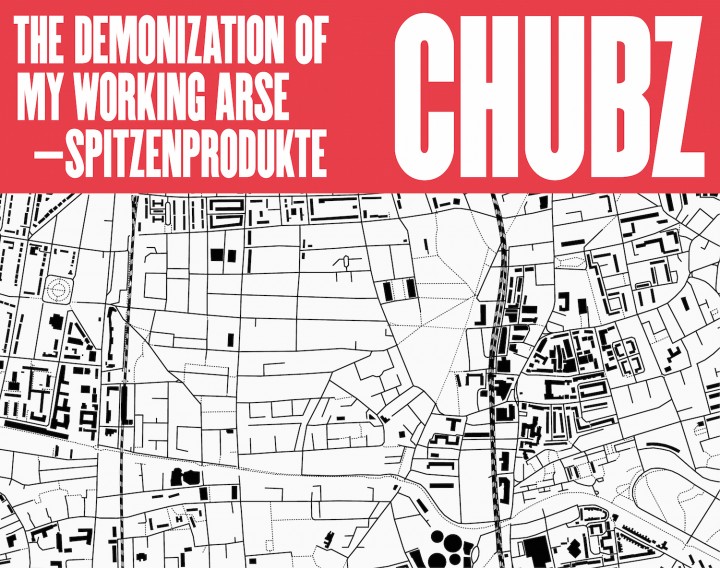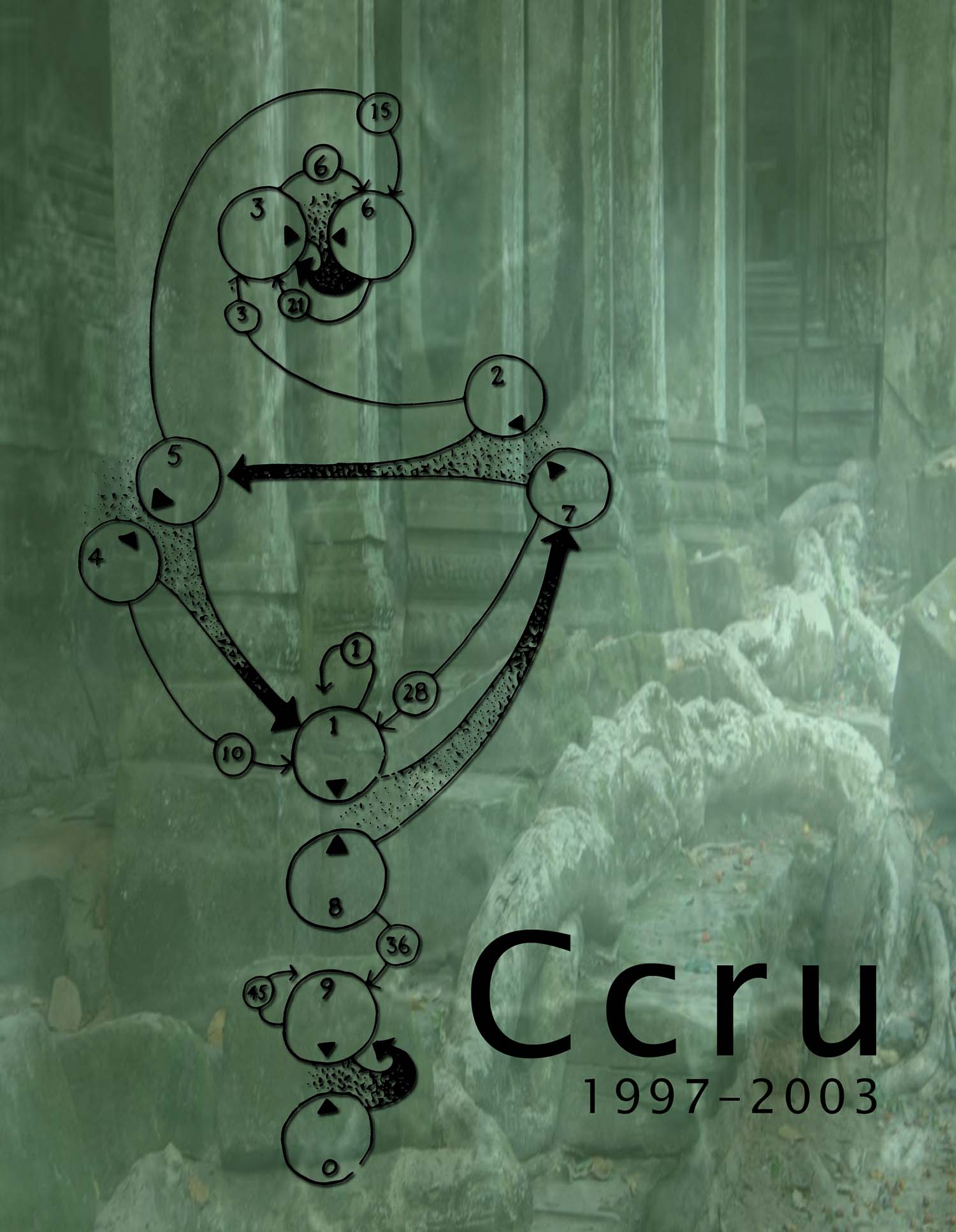The premise of Spitzenprodukte’s CHUBZ: The Demonization of my Working Arse is the following: we are in the middle of a brutally dry and hot London summer some time after 2011 — some time, that is, after the mass riots of August 2011, which are still fresh in the minds of the author and his fellow Londoners. It could easily happen again. Chubz, the eponymous protagonist of the book, states it plainly in the first pages: “I didn’t want a job this summer, I wanted to fuck, and I wanted stuff to kick off. I felt angry, too, right.”
Chubz is an unacknowledged composite of social types. In conversation and action he embodies various characteristics of a young, tough rude boy: he lives in council flats he grew up in, in Bermondsey; he naturally uses slang that would sound ironic coming from the mouth of a boy from another class (“innit,” “swear down,” “skin up”); he describes graffiti in East London as “bullshit posh graffiti”; he jumps fences continuously and kicks bottles down the street. His inner voice, on the other hand, is something more like that of an artist/intellectual and, by extension, probably that of the author himself: “I measure hookups in data involved, uploaded or downloaded… I never run the analysis. Quantifying is not the thrill, mediation, running desire through culture. Description, narrative…”
Formally reinforcing this unacknowledged/subtle composite structure, the perspective from which Chubz’s story is narrated jumps between first, third and, in a particularly confusing passage, second person. By the end of the book, as the story spirals into its euphoric climax of violence, other voices, representing a mix of Marxist analysis (“The looter and the online pirate are the subjectivities with the clearest most intuitive comprehension of the nature of contemporary semio-capitalism”) and branding sociology (“It is from within this cultural landscape that the influential and socially credible aesthetic consumer trends of the next 10-20 seasons will emerge”) further insert themselves, often italicized, into the text.
At no point does the composite nature of the protagonist feel like a product of authorial libidinal fantasy. Chubz is no ultimate queer hybrid superman who offers us “solutions.” Instead, this composite seems like a genuine attempt to render an urban fabric that Chubz (in his author-artist voice) “feels”: “London’s like a load of maps laid over one another; in my mind, a series of different lives like neighborhoods, and neighborhoods like lives, where angers and tears and joy sit upstairs and downstairs, on top of each other…”; or the portrait he produces in his mind of his Grindr date while waiting outside his door: “a composite of… the photos on his profile. How his head fits his body, how the skin from one photo, distorted through a dirty mirror, blends with the skin on his torso, bleached dry from the flash and the low-voltage lighting of the gym shower rooms… a Frankenstein top I’m piecing together from bits of grindr and second-hand sensations.” The composite style is the result of a process of mapping a city being strafed by algorithms of desire, fitness levels, finance, etc.
The London that Spitzenprodukte maps is the London anybody who has tried to be an artist there recognizes. A city that always seems to force one to become a kind of utopian toxic rat. A poor animal scurrying through the underground of the city, nibbling on it’s filth and getting infected. The infection, though, for the artist-rat, has to be delirious, a fantasy of some kind of utopia glimpsed through the delirium (obviously, for literary writers this utopia quickly turns into dystopia). London literature of the last thirty years is peopled with all sorts of examples of this, from J.G. Ballard to Stewart Home to Iain Sinclair to China Miéville.
Spitzenprodukte gets delirious as well. He’s an artist; like all of us he has a taste for the extreme, likes to slum it, likes to venture into the dark heart of capital where flows are intensely bodily but invisible. He knows that the body gets poetic when it moves into these situations of such force as to exceed any possibility of commensurate response. The summer gets hotter, violence begins to gurgle from the hot cement, the air becomes humid, a storm is imminent: “Sleepless, wireless, pinned 100ft over the building sites, a mesh of bitter data, buffering social disorder, high up above the estates, amongst the England flags, my arse is transforming the atmosphere! … The city is rattled and changed, the sky bruise-purple with pure cop-hatred.” The anticipated riots break out.
But as the city begins to be held hostage by violence, it’s clear that the writing lacks that literary something (I almost feel that the author’s fixation on representing London blocks the path to this something in the same way that, by the 19th century, the weight of reification seems to block serious literature’s use of modalities of the imaginary or wish-fulfillment, which in turn have to be reborn in subgenres like the popular science fiction novel) that would allow him to produce an immanent response, a twitch or shudder, a virtuoso performance that the reader’s imagination can hold without foregoing a sensitivity to the real.
Toward the end of the novel the texture of the real is in fact lost. In its place we are treated to a form of authorial fantasy: a somewhat textbook and retrograde Burroughsian Wild Boys pastiche of nihilism: boys (some also have vaginas) running about having anal orgasms and beating up cops. And the theoretical voice that inserts itself — “we were bodies here together and how we used them together like a diagram, a diagram of a process all linked, how my body worked with the body of the boy I’m next to — that became our politics because that’s where power was” — does little to recuperate value from this fantasy prose-explosion, even though, for all I know, what it’s saying might be right.




